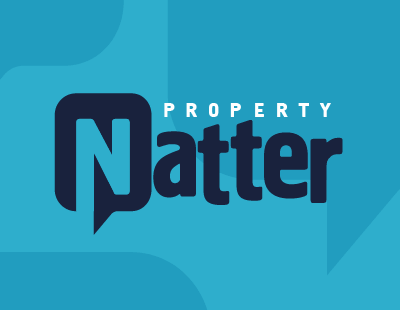As the world marches relentlessly forward to 2024, the government’s flagship legislation for the private rented sector (PRS) remains in limbo.
This time last year, it had been expected that the Renters (Reform) Bill would be on the statute books by January 2024. But the government waited until May before introducing the Bill, hesitated further before October’s second reading before coughing and spluttering its way through the committee stage at the beginning of December.
Now, like something of a Christmas tree, suitably adorned with glittering amendments, it will sit quietly in the corner and await its third reading at some point in 2024, before progressing to the House of Lords for similar treatment.
That means the multiple amendments by MPs and Peers – could be dropped, adopted or superseded when new ones are introduced.
Significant improvements
Already, since the Bill was introduced, more than 140 pages of amendments have been published – most of them from the government itself – but 26 further changes have been proposed by Labour.
Michael Gove has already announced that the Bill’s most controversial measure, scrapping Section 21 evictions, will be paused until there are significant improvements to the court system. Although, we are still waiting to see details on those reforms from the Department for Levelling Up, Housing and Communities.
Some of the other significant changes include:
- Allowing student landlords to regain possession after the academic year. (This only applies to HMOs but does not cover purpose-built student accommodation).
- Adopting the Decent Homes Standard in the PRS, which already applies to social housing. Local authorities would be given enforcement powers.
- Tougher investigative powers for housing authorities, including the powers to enter business premises without a warrant and require landlords and agents to provide information where there has been a possible breach of PRS regulations.
- A new clause allows the First-tier Tribunal to make an order against superior landlords, holding them liable for the behaviour of a rent-to-rent company. They could be asked to pay back up to two years of rent.
- Clearer rules against discrimination, making it illegal to discriminate against benefit claimants or tenants with children.
Time is running out to get this amended version of the Bill through both houses and on the statute books before the next general election, which is heavily speculated to be called in May 2024.
Labour’s Renters (Reform) Bill would be tougher
If the government can’t pass the Renters (Reform) Bill before the spring, we already have an idea of what the Labour version will look like. Deputy Leader and Shadow Secretary of State for Levelling Up, Housing, Communities & Local Government, Angela Rayner, has promised that Section 21 will be abolished on the first day of a Labour government.
We have also seen a number of rejected Labour amendments to the current Bill, which gives us more insight into their plans for the PRS should they form the next government. These include outlawing bidding wars, a call for a clearer definition of anti-social behaviour and a push to mandate landlords to join a redress scheme. It is however unlikely that a backbench proposal to introduce a cap on annual rent increases to either the Consumer Price Index or wage growth in the local area will become an official Labour policy.
2024 the key to rental reform
So where does all this leave the legislation? MPs will have an opportunity in 2024 to suggest amendments to the Bill when it returns to the Commons for its third reading, so if you want to see changes now is the best opportunity to voice your opinion.
However, with time running out before the next election, there is a risk that the Bill is rushed through without the changes it needs to provide a fair and transparent PRS that works for landlords, agents and tenants.
But perhaps the bigger challenge facing the industry is what happens if it doesn’t receive royal assent soon, as whoever wins the next election will want to revisit rental reform before too long.
Either way, PRS reform looks to be top of the political agenda for 2024.
Ends
Notes to editors
PayProp is an automated transactional and reconciliation platform for the residential lettings industry that is both easier to use and more powerful than existing solutions offered by banks and traditional software vendors. The platform sets the standard for speed and accuracy of payments, cost and payment status transparency, offering customers complete transactional control, and regulatory compliance.
PayProp was launched in 2004 and started trading in the UK in 2015. Since then it has quickly grown to become one of the largest processors of rental payments for the residential lettings industry, processing over £2.6bn in rental payments annually on behalf of thousands of letting agencies.
In the United Kingdom, PayProp is regularly consulted by governments on private rented sector issues and has been featured in the Telegraph, FT Advisor and ITV News. The company is recognised for its achievements by Feefo, the Negotiator, the 2023 Global Business Tech Awards, the ESTAS and as an Industry Supplier by Propertymark and Safeagent.
On 4 December 2023 Reapit and PayProp announced that the two companies were merging. The combined company will offer clients the opportunity to have a single provider that delivers capabilities across sales, letting, property management and client account management.
For more information, visit: www.payprop.co.uk
For media enquiries, please contact:
Robin Sillars (media) – robin.sillars@payprop.com
Neil Cobbold (managing director) – neil.cobbold@payprop.co.uk













.jpg)
.jpg)






.png)



Join the conversation
Jump to latest comment and add your reply
"Allowing student landlords to regain possession after the academic year. (This only applies to HMOs but does not cover purpose-built student accommodation)."
This is correct in spirit but not fact - the white paper refers to student tenancies other than PBSA. A Single-bedroom unit or two-bed house would not technically be an HMO but if subject to a student tenancy, it would still attract the exemption that HMO benefit from. This is important as much of the growth in non-PBSA student houses has been in this area due to the implementation of Article 4 directions in student towns and cities across the country which only affect HMO .
Please login to comment